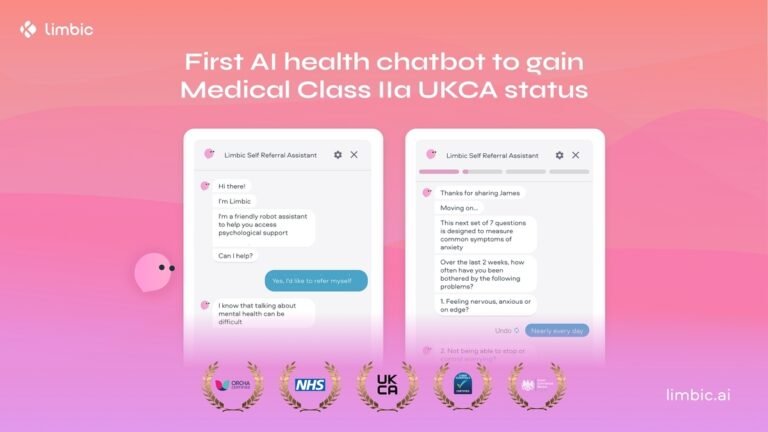Navigating the space of AI chatbots in mental health
Artificial intelligence (AI), and AI chatbots in particular, are carving out an important niche in the mental health field. They have been successful in increasing self-referrals to talking therapy for common mental health disorders. However, as this technology continues to evolve, the challenge is to ensure that increased access translates into high-quality care experiences and outcomes.
AI chatbots and their impact on self-presentation
A study published in Nature Medicine that included approximately 130,000 people reveals the potential of AI chatbots. We found that AI increased referrals, especially in terms of diversity. These digital tools are addressing several important barriers and reducing accessibility gaps in mental health services.
Additionally, the JAMA Health Forum notes that the use of psychiatric telemedicine services has skyrocketed during the COVID-19 pandemic. This shows the growing acceptance and reliance on digital platforms for mental health support.
AI-powered toys and chatbots: The new face of mental health support
AI-powered toys and chatbots are revolutionizing mental health support by providing personalized education, entertainment, and critical mental health support for both children and adults. Toys like Moxie provide emotional support, and chatbots make therapy more accessible and efficient. These are encouraging more people with common mental illnesses to seek talk therapy and can also predict the effectiveness of medications.
AI chatbots are also used in extreme situations. For example, space AI is providing psychological assistance to future space colonists. The adoption of chatbots in the healthcare industry is revolutionary for providing 24/7 availability, personalized experiences, cost-effectiveness, appointment booking, symptom assessment, and treatment of mental health conditions. has been proven.
AI-powered platform: Democratizing mental health support
Platforms like Deepen leverage AI to provide users with a confidential space to express themselves and explore their ideas at any time. This will democratize mental health support and make it more accessible to everyone. AI chatbots like ChatGPT can provide support for mental health disorders through information, emotional support, coping strategies, self-care exercises, reminders, crisis support, and referrals.
ChatGPT uses natural language processing and machine learning to understand user needs, highlighting the advanced capabilities of AI in the mental health space. Available 24/7, this treatment provides convenience often lacking in traditional treatments and further strengthens the role of technology in mental health care.
Looking to the future: The future of AI chatbots in mental health
AI chatbots and digital platforms hold great promise in increasing access to mental health care, but it is important to ensure this access is matched with quality treatment experiences and outcomes. As AI continues to evolve and shape the mental health landscape, additional work and research is needed to optimize these digital solutions and truly revolutionize mental health care.


